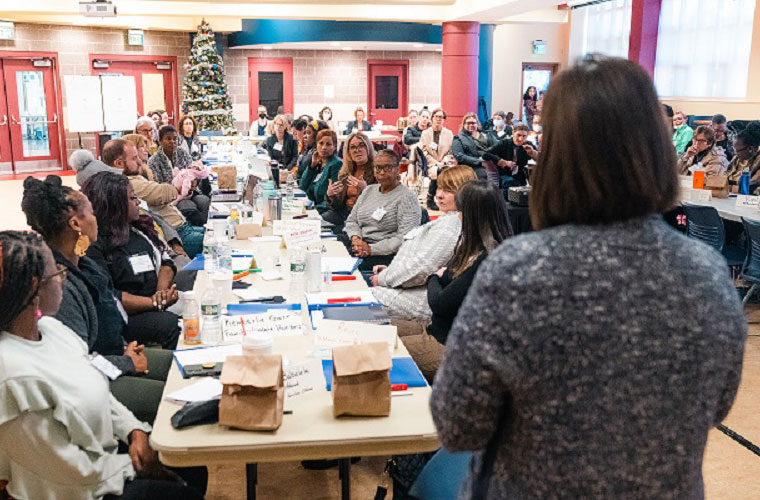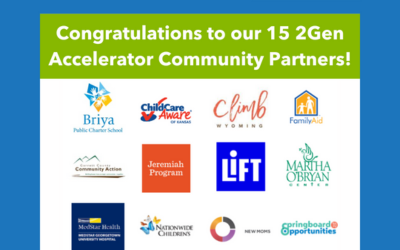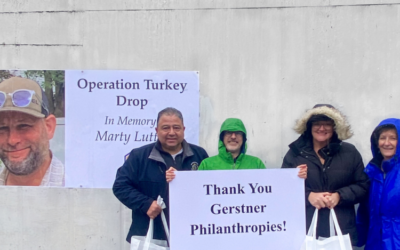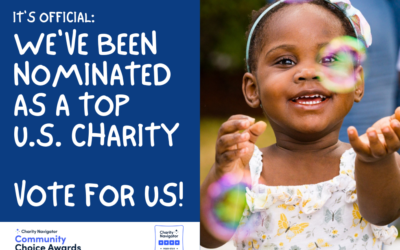Fixing Systems to Help Vulnerable Kids
Fixing Systems to Help Vulnerable Kids
Through CHIME, FamilyAid spearheads a collaborative effort to improve children’s services.
Genevieve and her three children unexpectedly found themselves without a home when a landlord illegally evicted the family following neighbors’ complaints about her young son, Andrew, who is affected by developmental challenges. They briefly stayed with a series of family friends, only to be asked to move on each time due to similar circumstances.
With no stable housing and no support, Genevieve was unable to get the help her son needed, or those of her other son and infant daughter. Thankfully, she was directed to FamilyAid, whose navigators and case managers stepped in and provided immediate shelter and got Genevieve’s children connected to extra medical and behavioral health support, and daycare for her younger children. With that support, Genevieve was able to get back to work and within the year, stable permanent housing.
“My tears now aren’t tears of sadness,” Genevieve said. “They’re tears of joy because I’ve worked with this great, great team. I feel like we’ve been given our freedom again.”
Genevieve’s family is far from alone in experiencing the challenges and frustrations of finding services for her children. Thousands of homeless families currently find themselves on lengthy service waitlists – partly due to lack of prioritization for homeless children – with little or no guidance as they navigate complicated processes to access vital supports and resources.
“Every day, we work with families whose children have deep, complex needs like Genevieve’s,” said Masami Dustin, FamilyAid’s Strategic Projects Manager. “While our case managers and navigators provide the support needed to secure housing and build towards whole-family success, we realize Boston needs a larger strategy that makes it easier for any family falling into homelessness to find and access services, regardless of their situation.”
Fortunately, Dana-Farber Cancer Institute also recognized the need to improve the system. With a focus on mitigating future homelessness and health issues for vulnerable children, Dana-Farber funded an Access to Services grant to 12 local nonprofit organizations in 2021 to support long-lasting community health improvement and boost linkage of existing health and support organizations in the region. One of the results was CHIME – Child Homeless Intercept Mapping and Engagement – a collaborative effort that maps and improves systems of care for children facing homelessness.
Spearheaded by FamilyAid, the collaborative program is led by Horizons for Homeless Children, Boston Public Schools, Boston Children’s Hospital, City Year Greater Boston, New England Community Services, and the United Way with support from Boston College School of Social Work and the Commonwealth Executive Office of the Trial Court. CHIME has connected more than 150 leaders, families with lived experiences and expert facilitators, forming a consortium to tackle common barriers to services and plans for improvements across six convenings. Each one addresses one of six “dimensions” of a 2Gen strategic approach to building family well-being:
- Shelter, housing,
- and economic assets
- Early childhood education
- K-12 education
- Social capital
- Postsecondary and employment pathways
- Health and well-being
Three CHIME convenings have already taken place over the past nine months, with three more scheduled in the upcoming months before a final all-participant summit scheduled for late 2024. More than 250 additional individuals are expected to be involved in the work.
“CHIME has brought together a broad representation of leaders and families with lived experience in a way I have not seen in previous projects,” said Kathleen Kemp, Brown University professor and CHIME lead facilitator. “We hope CHIME is a catalyst for consistent, long-term efforts driven by the community.”
All of the CHIME reports from the convenings will be available to the public upon completion. To read the first report and see current efforts underway, visit https://lnkd.in/e4GDZ3jt.



